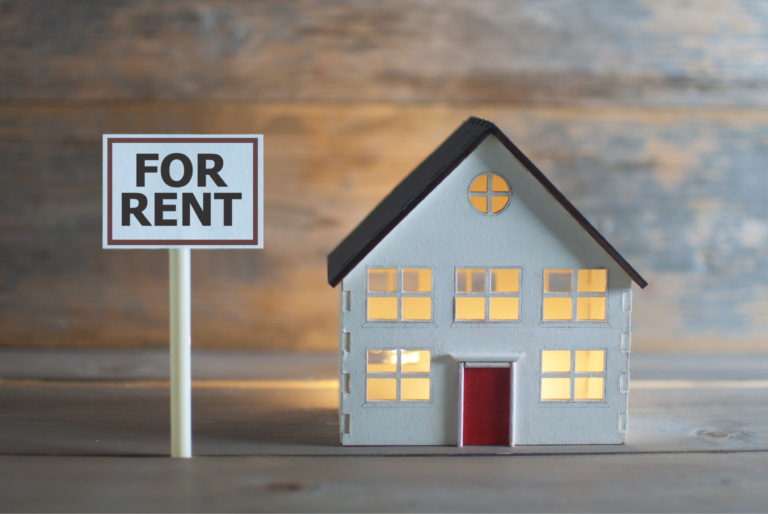Becoming a landlord can be a profitable venture, but it requires careful planning, a clear understanding of the costs involved, and knowledge of the legal and financial responsibilities of owning a rental property.
Whether you’re looking to rent out a single property or are starting to build a portfolio, you need to understand how to get from Point A to Point B.
In this guide, we’ll walk you through the key aspects of becoming a landlord—we’ll cover everything from the initial financial investment to understanding landlord insurance to renting with a mortgage.
We’ll also take you through the specific requirements for becoming a landlord in Washington State, so you’ll end the article with the insights needed to confidently begin your journey as a landlord.
What Does it Cost to Become a Landlord?
Before you decide to go all in on becoming a landlord, it’s prudent to crunch the numbers so you have a proper understanding of how much it will cost. Let’s assume you already own a property that you’re considering turning into a rental—there are fixed and variable costs associated with running a rental property.
Fixed Costs
Fixed costs for a landlord are any costs that will remain consistent month-to-month. These include your mortgage, HOA fees, property taxes, landlord insurance, and any applicable rental licenses or inspections. These fixed amounts will make up the majority of the costs you incur as a landlord and vary depending on location.
You can expect to pay approximately:
- $868 per year for landlord insurance.
- $360 per month for HOA fees, if your rental is part of an HOA.
- $132 per year for rental licenses.
- 8-10% of the monthly rent for property management services.
Let’s take a look at the average cost of renting a 3-bedroom in Seattle—the average monthly rent is $3,495. Your monthly fixed costs would be approximately $1,027 or $12,334 per year.
Annual Property Maintenance Costs
In addition to your fixed costs, you need to consider how much you’ll need to pay towards maintenance costs. Think about ongoing maintenance and common repairs or replacements—lawn care, gutter cleaning, snow removal, the odd clogged toilet, and HVAC maintenance all require ongoing or additional maintenance.
While not all of these costs will apply to you and your rental property, it’s essential to have an understanding of how much ongoing maintenance may cost. Here are the national averages for common maintenance needs:
- Landscaping: $100-300 per month
- Pest prevention: $80-$120 per visit and $400-$950 per year
- HVAC servicing: $120-$360 per year
- Gutter cleaning: $120-$425 per year
- Pool maintenance and operation: $3,000-$6,000 per year
- Snow removal: $200-$600 per season
- Clogged drain or toilets: $75-$300/each
- Electrical repairs: $150-$420/each
- Appliance repairs: $100-$400/each
Self-Managed Property Costs
If you choose to manage your property without the help of a professional, you’ll need to factor in the various costs associated with property management. While these costs are variable, you should still create an estimate of what you can expect to pay each year.
The various costs include:
- Listing your property on rental websites: $0-$100 per listing site.
- Photography of property: $110-$1,000 per session.
- Note: The cost of property photography is dependent on how many images are delivered, the size of the property, and the experience level of the photographer.
- 3D tour or video: $500-$5000 per session.
- Note: The cost of property videography is dependent on how many videos are delivered, the size of the property, and the experience level of the videographer.
- Accounting or tax professional fees: $2,000+ per year.
- Legal fees or attorney: $150-$400 per hour as needed.
- Tenant verification tools: $35-$75 per applicant.
Everything You Need to Know About Landlord Insurance
We mentioned above that landlord insurance is a fixed expense as a landlord. Landlord insurance is extremely important—while you may currently have homeowner insurance, landlord insurance is essential when you have a rental property. While it is not required by law in Seattle
Landlord insurance covers:
- Loss of use coverage: If your rental property becomes inhabitable due to fire, flood, or other emergencies, your policy will pay you the rental income until the property can house tenants again.
- Landlord property protection: Your property is your investment so keeping it safe is essential. Landlord property protection covers your property as well as other structures like sheds and detached garages, and personal equipment used to service the rental property like a lawnmower.
- Landlord liability protection: Landlord liability protection covers the costs for another person’s medical bills and/or your legal expenses if someone is injured on your property and you are ultimately found responsible. You can add an umbrella policy for additional liability coverage.
- Emergency coverage: If there is a fire, flood, or other problem that is covered by the policy or a maintenance issue that cannot wait, most landlord insurance policies will cover repairs and other expenses.
- Burglary: This covers any damage to your property during a robbery.
- Vandalism: If your property is damaged, this can be covered with extended insurance coverage.
A landlord insurance policy helps to mitigate risks and creates a plan for unexpected emergencies or situations. Landlord insurance protects your investment property from natural disasters and tenant-caused damage, gives you a financial cushion if there are repairs that need to happen due to unforeseen events, limits your personal liability, and helps you recover lost rental income.
Renting out a House With a Mortgage
If you’re still paying off your mortgage and are planning to rent out your property, you might be wondering if this is even above board. Most lenders have rules around renting out a home that they have financed. To ensure you stay in your lender’s good books, there are a few steps to take before you rent out your home.
Step 1: Review Your Paperwork
When you applied for your mortgage, your lender most likely asked for the intended use of the property. If you had been living in your home before renting it out, then you most likely told the lender you planned to live there.
While it might not seem like a big deal to simply switch, it’s worth reviewing your paperwork to see if there are any restrictions outlined on the mortgage you have.
Most lenders allow you to start renting your home to others once you’ve lived there for 12 months or more, but it’s essential to read over your contracts before making a decision. While you’re doing a paperwork deep dive, if you’re part of an HOA, ensure they don’t restrict rentals.
Step 2: Notify Your Lender
To avoid any misunderstandings, notify your lender that you plan to turn your dwelling into a rental property. You may need to discuss altering the terms of your agreement, but this will ensure that you’re being honest and forthright.
Step 3: Change Your Insurance
We’ve talked enough about how important landlord insurance is so we won’t get into that again. But if you were living in your home, odds are you had homeowner insurance. Before tenants move into your rental, be sure to change your homeowner insurance to a landlord policy.
Is Being a Landlord Passive Income
People are often drawn to the idea of being a landlord because it is touted as a way to earn passive income. Passive income is defined as income that is gained with little to no labor to earn or maintain.
To put it simply, being a landlord is not completely passive income unless you have a property management company helping you manage your properties. While it depends on your property, on average landlords spend approximately 96 hours per year working on each property. While two weeks of work might not seem like a lot, that is the best-case scenario. If you have bad tenants, a longer-than-normal vacancy period or your rental property needs a lot of maintenance, you’ll be forced to spend more time managing your property.
If your goal is to use your rental properties as passive income, hire a property manager. Working with a professional property management company means someone else will handle the majority of the day-to-day operations and emergencies when they arise. You can feel confident knowing that your investment is protected while being a hands-off landlord.
How to Become a Landlord in Washington State
There are some things that every property owner should consider before taking the leap to become a landlord in Washington State.
Licensing and Permits
Becoming a landlord in Washington State doesn’t require a landlord license or permit at the state level. There are some local municipalities that have their own regulations so be sure to check with your city to determine if there are any local licenses you need, especially if you plan to operate a short-term rental property.
Understanding Landlord-Tenant Laws
There are specific landlord-tenant laws in Washington State that govern the relationship between landlords and their tenants. It’s important to have a working knowledge of these laws to ensure you are compliant.
Landlord-Tenant Act (RCW 59.18) governs most aspects of renting in Washington, including:
- Security deposits.
- Lease agreements.
- The eviction process.
- Rent control.
- Notice requirements.
Washington landlords are also bound by the federal Fair Housing Act which protects tenants from discrimination based on race, color, national origin, religion, gender, family status, or disability. It’s essential landlords familiarize themselves with these laws so they can follow them at all times.
Take the Stress out of Property Management
If you’re looking to dip your toe into the rental property market, we can help make the transition as seamless as possible. At SJA Real Estate, we help owners and investors of single-family and small multi-family properties across the greater Seattle and Puget Sound areas in Washington effectively manage their properties.
If you’re looking for a smooth and easy rental property management solution, reach out today.
Becoming a Landlord FAQs
How many rental properties to make $100,000 a year?
The number of rental properties needed to make $100,000 a year depends on cash flow, financing, and property types. Using cash flow as a starting point, if you have an average cash flow of $2,000 per property per month, you’d need approximately 4-6 properties to reach $100,000 annual income.
What is a good monthly profit from a rental property?
A good monthly profit margin for rental properties is anything greater than 10%. But for many rental property owners, earning between 5% and 10% is a healthy return on investment to start with.
What rent should I charge?
A good rule of thumb to determine how much rent to charge is to charge between 0.8%and 1.1% of the property’s current market value. So, if your property is valued at $550,000 a reasonable monthly rent would fall between $4,400 and $6,050. But ultimately, the market dictates what a property will rent for. So whether it’s 0.8% or 1.7%, the market has to be able to support that amount.
How long does it take to make a profit on a rental property?
How long it takes to make a profit on a rental property is dependent on various factors including initial costs, operating expenses, rental income, location, and more. If your rental is cash flow-positive to start, you can see a profit within the first year or two. More often than not, it takes closer to 3-5 years to see a profit from a rental property.






